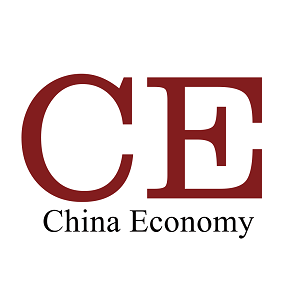China will continue to fortify quality control over exports of medical supplies and severely punish those who ship counterfeit and inferior goods as part of its ongoing efforts to better support the global battle against the COVID-19 outbreak, according to government officials.
Boosted by surging overseas demand, the country exported 134.4 billion yuan ($18.93 billion) worth of medical supplies abroad, including 50.9 billion masks, 216 million protective suits, 26.43 million infrared thermometers, COVID-19 testing kits for 162 million people and 72,700 ventilators between March 1 and May 16, the General Administration of Customs said on Sunday.
To protect the international image of products made in China, the government has tightened procedures required to ship medical supplies overseas, and will severely crack down on illegal activities, said Jin Hai, director-general of the GAC's department of general operations.
The administration unveiled a list of 16 companies exporting unqualified COVID-19-related supplies, including masks and protective suits earlier this month. Punishments such as administrative penalties, credit downgrade and disqualification for exports have been imposed on some erring manufacturers from Jiangsu, Shandong, Zhejiang, Guangdong and Sichuan provinces.
Starting April 26, businesses exporting products verified or registered overseas-including COVID-19 testing kits, medical masks, ventilators and infrared thermometers-have been asked to provide an export declaration of medical supplies to Customs authorities, who clear the products in accordance with the business lists.
As many importing countries were having difficulties in obtaining sufficient supplies, China, a vital part of the global medical industrial chain, has stepped up efforts, Jin said, adding the nation has not restricted and shall never restrict exports of medical supplies.
Li Xingqian, director-general of the Ministry of Commerce's department of foreign trade, said China has maintained close communication and cooperation with the certification and registration agencies in various countries, including the US Food and Drug Administration, since the outbreak of the global epidemic.
To ensure the country's exports of anti-epidemic materials meet the quality requirements of importers, Li said a number of special work teams have been deployed in 10 provinces and cities to conduct on-site inspections.
The ministry said last week that exports of six types of medical supplies including face masks, test kits and ventilators should meet quality supervision requirements, and simplified Customs declaration via market procurement trade is not possible, as some domestic cities including Yiwu in East China's Zhejiang province and Guangzhou in South China's Guangdong province have suspended their export channels.
The ministry said that it was temporarily suspending market procurement trade for the sake of reinforcing medical product export quality supervision and will effect the exports of medical supplies through main commercial channels.
Foreign companies and individuals can still buy medical products in cities such as Yiwu and file for Customs declarations through general trade, according to the new policy.
The decision came as the government lifted its supervision of medical product exports to ensure quality, following some foreign media reports regarding the quality of made-in-China medical supplies which arose amid an overseas order rush.
Hu Yan, special assistant to the chairman of Crown Name Disposable Hygiene Products Fty Ltd, a Wuhan-based medical supplies manufacturer, said Customs authorities had carried out a series of inspection requirements recently to ensure the quality of medical products exported overseas. As the government had been frequently adjusting and raising its inspection standards, the company had changed its export packaging several times.
The company, as a leading exporter of protective clothing in Hubei province, received foreign orders worth $90 million from Europe, the United States and Australia, among others, in late March.
"Amid the unprecedented COVID-19 outbreak and skyrocketing demand for protective clothing, we took steps to increase production capacity as much as possible while strictly improving product quality. We even raised product quality standards to the next level," Hu said.
Chen Qiaoshan, a medical analyst at Beijing-based market consultancy Analysys, said: "The government's effort in requiring extra documentation for medical supplies that are exported overseas further ensures product quality and prevents enterprises from improperly gaining an edge in the overseas market."
Medical companies should obtain a permit in the first place from countries they plan to export to. If the quality requirement of the permit from the importing country is higher than that of China's government branches, the extra documentation required by the Chinese government serves as an additional check, she said.
"If the importing country doesn't have a quality requirement as high as China does, the extra material can be a good relief."



